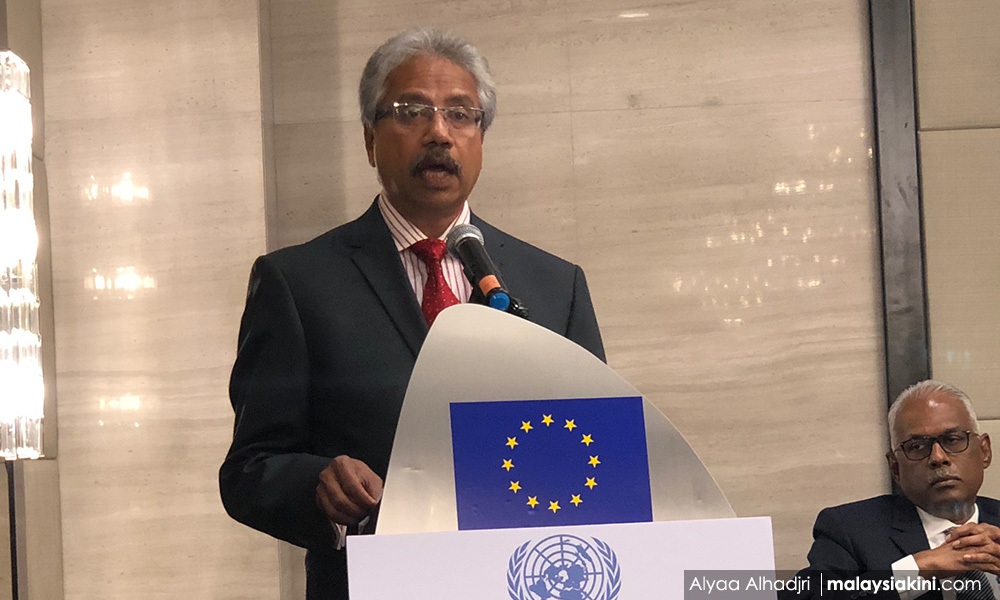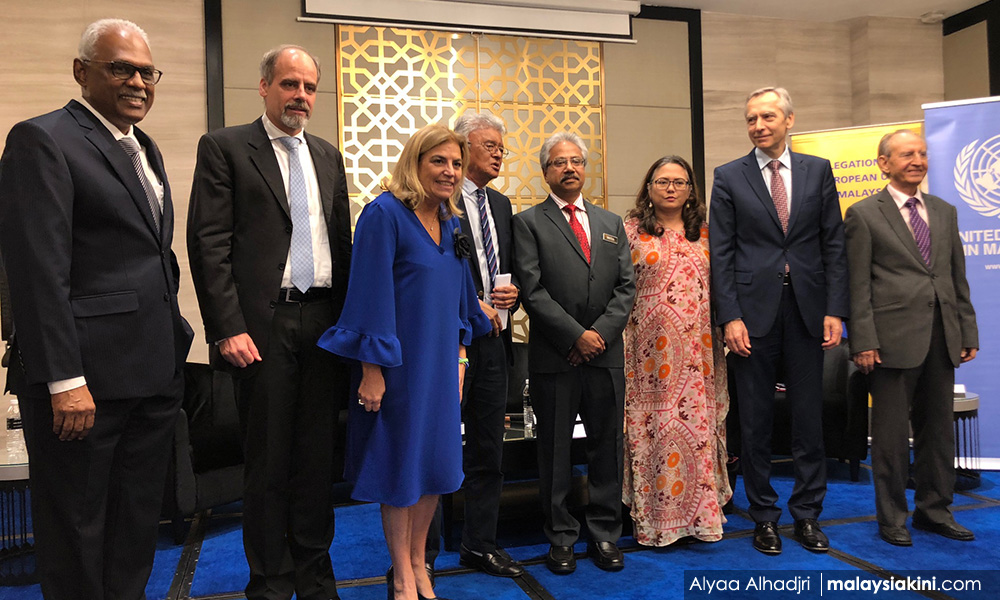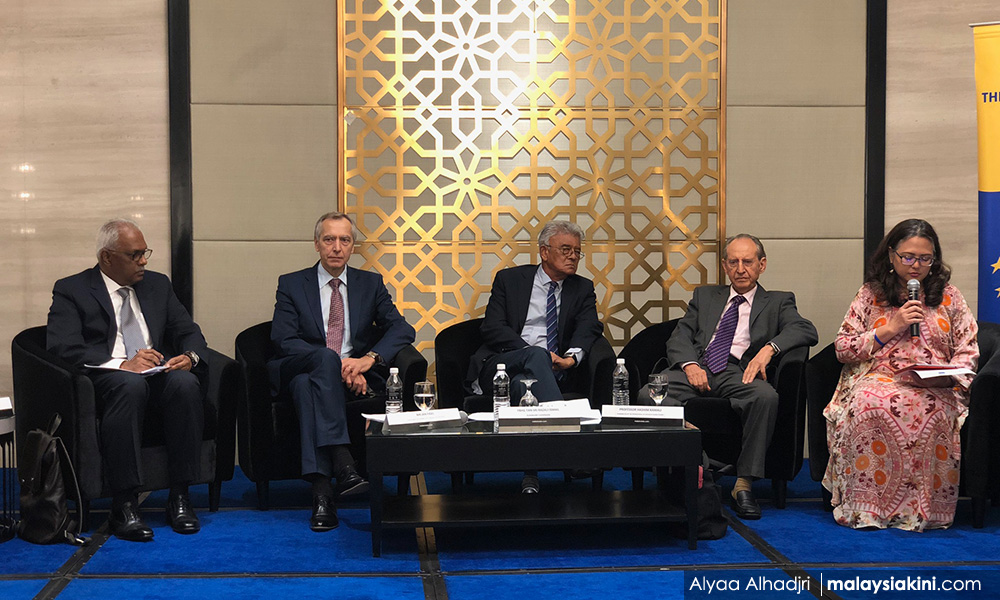
Amid concerns raised over Putrajaya's plans to ratify the International Convention on the Elimination of All Forms of Racial Discrimination (Icerd), a minister today argued that the United Nations instrument could serve as a unifying tool for Malaysians.
Minister in the Prime Minister's Department P Waythamoorthy reassured critics that ratification would not compromise any provisions of the Federal Constitution, a stand previously taken by other Harapan leaders, including Home Minister Muhyiddin Yassin.
"As the minister in charge of national unity and social wellbeing, I view the international convention Icerd as an excellent unifying tool for countries such as Malaysia, which has diverse religions and ethnicities.
"That notwithstanding, I acknowledge the concerns raised by various quarters on this issue," he said in his closing address at a European Union-UN event in Kuala Lumpur in conjunction with the 70th anniversary of the Universal Declaration of Human Rights.
"The government will ensure that any ratification to the treaties will be done through an inclusive process of consultation, where the views and concerns of all stakeholders will be taken into consideration," he added.
Waythamoorthy also pointed out that the move to ratify Icerd is consistent with the Pakatan Harapan government's pledge to uphold human rights under its administration.
'Proponents have to speak out'
Going beyond the elimination of racial discrimination, an earlier panel featuring Klang MP Charles Santiago (far left in photo) had discussed issues surrounding universal human rights in the context of religious freedom in Malaysia.

At the same time, he also responded to a question on the government's commitment to ratify Icerd in the face of concerns raised by various quarters, including from Bersatu's youth wing.
"I have consistently said that Icerd will not compromise Article 153 of the Federal Constitution... But I had this barrage of attacks against me," he said, adding that some of these attacks were politically motivated against his party DAP.
Santiago, who chairs the Asian Parliamentarians for Human Rights, also noted that the arguments against Icered, predominantly among the Bahasa Malaysia-speaking community, had drowned out others who were for ratification.
"The proponents of that (ratification) really have to come out, and it is best if it comes from Malay-Muslims."
'Freedom of belief includes freedom not to believe'
On the topic of freedom of religion, Santiago admitted it was a "complicated and sensitive" area which the government has been slow to respond to, for example in cases of alleged conversion to Islam.

Fellow panellist, Sisters in Islam executive director Rozana Isa (far right in photo), said the protection of the freedom of belief should also be extended to a person's freedom to not believe.
"I say this because one's own dignity include being honest to oneself.
"And if we are forced to believe one way or another, we are forced to be dishonest with one's self, and this also takes away the human dignity we want to uphold and protect," she said.
Rozana also noted that she rejected the narrative of Islam having to be "protected" against perceived threats to its sanctity.
"Islam does not need to be protected.
"Claiming that laws, policies and practices related to Islam in Malaysia must be protected simply means that we submit that Allah is not Akbar (the greatest)," she argued.
Also present during the event were UN resident coordinator for Malaysia Stefan Priesner, and the EU special envoy for the promotion of freedom of religion or belief. - Mkini



No comments:
Post a Comment
Note: Only a member of this blog may post a comment.